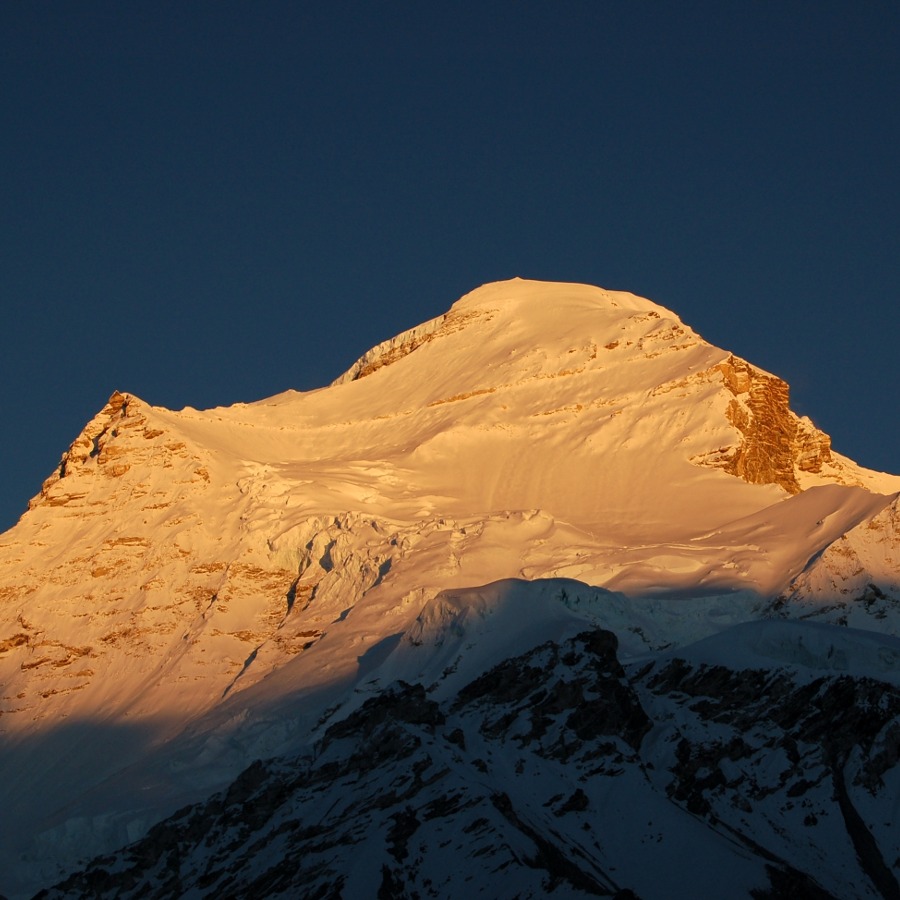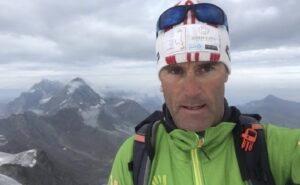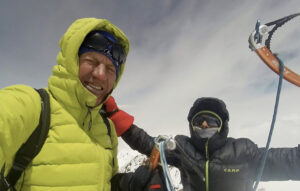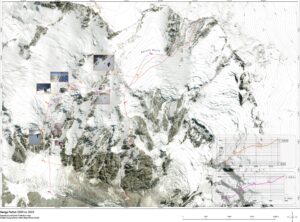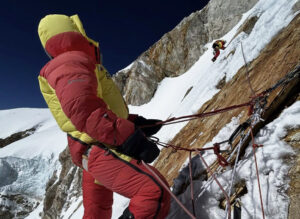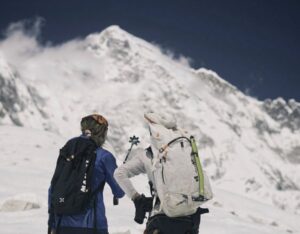It is confirmed, Cho Oyu is open to foreign expeditions on the normal route in Tibet. But climbers will need to stick to some strict rules, leaving much of the sense of adventure behind in the name of safety.
At least five teams
A team from Furtenbach Adventures, comprising eight western climbers and 10 Sherpa guides, crossed the border into China yesterday. They expect to reach Base Camp today.
New Zealand-based agency Adventure Consultants has a team acclimatizing in Langtang and Climbalaya has also announced an expedition. Alpenglow Expeditions has two clients led by Carla Perez and Topo Mena already in Tibet.
There will be also a larger local team launched by the CTMA (China/Tibet Mountaineering Association). The CTMA team will be in charge of leading the way and fixing ropes up the route. Then, the expeditions’ support staff will pitch and supply the three high-altitude camps on the normal route up the northwest side of the mountain.
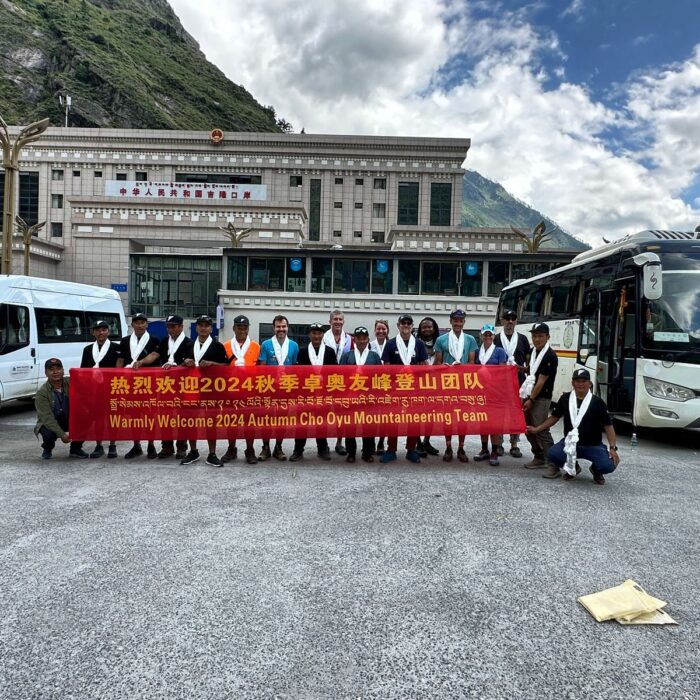
Furtenbach Adventures Cho Oyu expedition at the Chinese border on Wednesday. Photo: Furtenbach Adventures
The rest of the climbers will have to follow along, sticking to regulations that replicate those applied in spring on Everest.
- No solo climbers on the mountain.
- Supplementary O2 is mandatory from 7,000m up.
Furtenbach’s team is okay with such requirements. All their members will use supplementary O2 and many are already acclimatized, having followed hypoxic training at home or having already climbed Yala Peak in Langtang. If needed, they could be ready to attempt the summit in a single push. However, they will probably complete some rotations as the CTMA team still needs to fix the ropes and that will take time.
The end of no-O2 14×8,000’ers
While these measures will not change the style and strategy of commercial teams, they make a big difference to more independent-minded climbers. Cho Oyu is considered one of the safest, easiest 8,000’ers when climbing on the normal route. It was also one of the 8,000’ers most frequently climbed without the help of bottled O2.
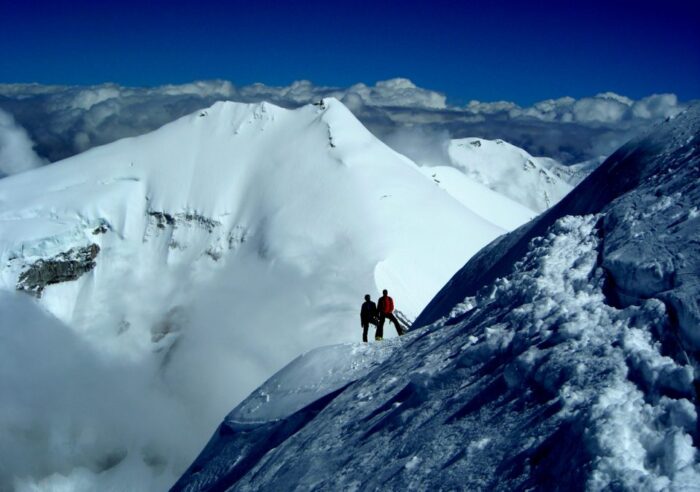
Climbers on Cho Oyu. Photo: Furtenbach Adventures
The measure will also affect climbers wishing to complete the 14×8,000’ers without O2. Cho Oyu’s south side is in Nepal but poses a much greater challenge. In spring this year, Gelje Sherpa led a Nepalese team (and French climber Alasdair McKenzie) to the summit via the SSW ridge, but information on that ascent is still limited and we don’t know if any enterprising teams plan to launch new commercial attempts there.
Climbers aiming for Shisha Pangma without supplementary O2 (which was the regular way to climb that mountain until the ultra-commercialization of the Himalayan peaks) may face a dilemma too. If it’s open to foreigners at all, Shisha Pangma will almost certainly be subject to the same conditions.
